GCA has announced its shortlist of nominees for the 2023 Local Adaptation Champions Awards, including five outstanding initiatives in the Capacity Building category. Applications were received from individuals and organizations all around the world, and the five finalists in the Capacity Building category are implementing a diverse range of innovations that support a continuous and evolving process of learning.
Wanwod Development Organization
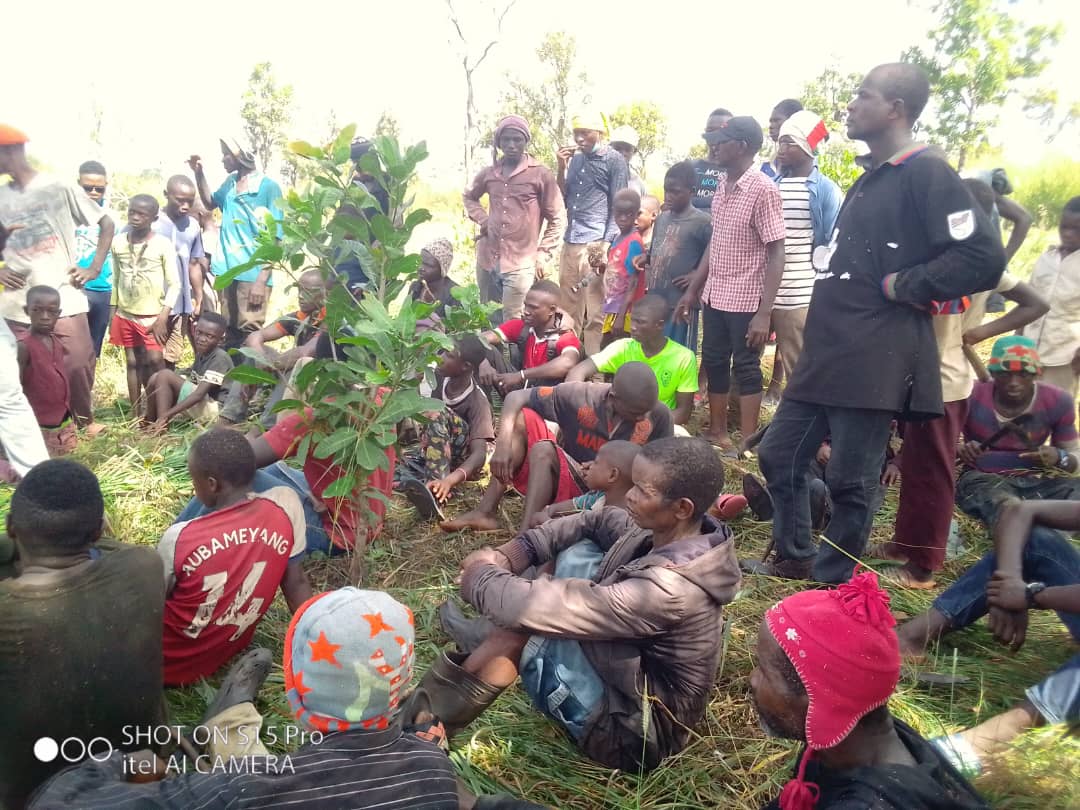 With its philosophy of “cut one, plant two,” Wanwod Development Organization has established a 20-acre farm in Sanda Magbolontor chiefdom, Sierra Leone, where polyclonal varieties of cashew nut are grown that have the potential to withstand future climate-related issues. Educational courses also provide farmers with climate adaptation and resilience training that encourage more women and organizations to engage in climate-driven agricultural practices. “It is clear that agriculture, done right, is the best means the world has today to simultaneously tackle food security, climate crisis, inequality, and environmental extinction,” explains Dumbuya Komrabai, Founder and Executive Director. This initiative allows farmers to see and understand the benefits of agricultural practices that are sensitive to the climate, and increased implementation of these practices reduces deforestation due to wood burning, the timber trade, and mining that have led to poor yields, a scarcity of safe drinking water, and food insecurity.
With its philosophy of “cut one, plant two,” Wanwod Development Organization has established a 20-acre farm in Sanda Magbolontor chiefdom, Sierra Leone, where polyclonal varieties of cashew nut are grown that have the potential to withstand future climate-related issues. Educational courses also provide farmers with climate adaptation and resilience training that encourage more women and organizations to engage in climate-driven agricultural practices. “It is clear that agriculture, done right, is the best means the world has today to simultaneously tackle food security, climate crisis, inequality, and environmental extinction,” explains Dumbuya Komrabai, Founder and Executive Director. This initiative allows farmers to see and understand the benefits of agricultural practices that are sensitive to the climate, and increased implementation of these practices reduces deforestation due to wood burning, the timber trade, and mining that have led to poor yields, a scarcity of safe drinking water, and food insecurity.
Climate Change Advisors Ghana
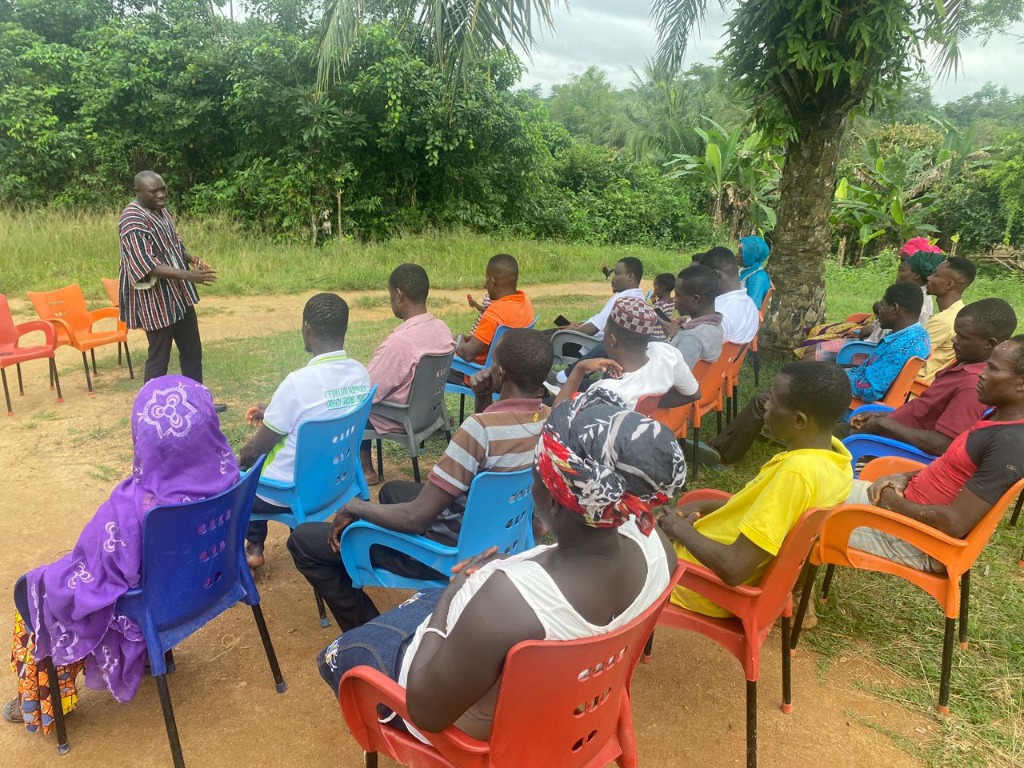 In Ghana, Climate Change Advisors Ghana is bridging the gap between traditional wisdom and modern science by integrating Indigenous knowledge that has been accumulated over generations with contemporary climate science and adaptive practices. Workshops, training sessions, and knowledge-sharing events that bring together farmers, community leaders, and climate change advisors provide community members with practical insights into climate-resilient practices, sustainable resource management, and financial literacy. Executive Director Dzifa Francis Ahadzi says the project directly contributes to reducing vulnerability to climate-related shocks and fosters long-term resilience within these communities: “These capacity-building efforts enable community members to identify and prioritize climate vulnerabilities, design resilience plans, and access funds to implement these plans effectively.” The initiative was initially implemented in Abrafo but has now been extended to diverse landscapes in Agona East and the Mfantseman Municipal.
In Ghana, Climate Change Advisors Ghana is bridging the gap between traditional wisdom and modern science by integrating Indigenous knowledge that has been accumulated over generations with contemporary climate science and adaptive practices. Workshops, training sessions, and knowledge-sharing events that bring together farmers, community leaders, and climate change advisors provide community members with practical insights into climate-resilient practices, sustainable resource management, and financial literacy. Executive Director Dzifa Francis Ahadzi says the project directly contributes to reducing vulnerability to climate-related shocks and fosters long-term resilience within these communities: “These capacity-building efforts enable community members to identify and prioritize climate vulnerabilities, design resilience plans, and access funds to implement these plans effectively.” The initiative was initially implemented in Abrafo but has now been extended to diverse landscapes in Agona East and the Mfantseman Municipal.
PROYASH
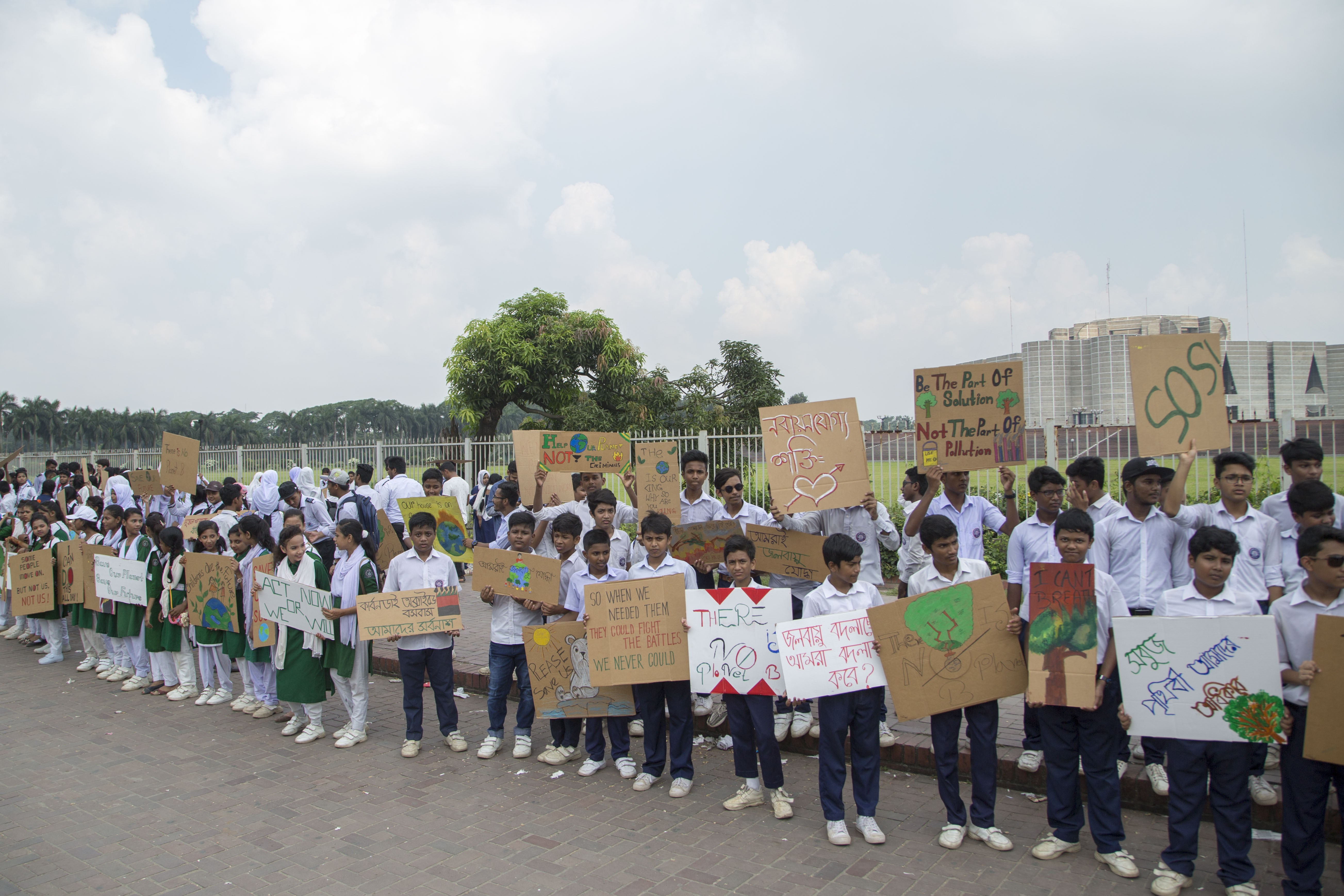 The PROYASH project has been implemented by Save the Children International in three cities of Bangladesh to mitigate vulnerability to unpredictable urban hazards. In Dhaka North City Corporation, Chattogram City Corporation, and Savar Municipality, urban volunteer groups, women’s groups, and children and youth groups work with Ward Disaster Management Committees to strengthen emergency preparedness, particularly in informal settlements comprised of climate migrants who have moved from rural to urban locations. “This community-based resilience model emphasizes community awareness and an enhanced level of preparedness at the family, community, and institutional levels through effective collaboration between the community and stakeholders,” Simon Rahman, Manager of Urban Resilience, explains. Training in topics such as emergency response, search and rescue, fire safety, and first aid enable volunteers to actively spearhead campaigns and engage in advocacy initiatives. “These efforts have encouraged cleaner, greener, and safer cities,” Rahman adds.
The PROYASH project has been implemented by Save the Children International in three cities of Bangladesh to mitigate vulnerability to unpredictable urban hazards. In Dhaka North City Corporation, Chattogram City Corporation, and Savar Municipality, urban volunteer groups, women’s groups, and children and youth groups work with Ward Disaster Management Committees to strengthen emergency preparedness, particularly in informal settlements comprised of climate migrants who have moved from rural to urban locations. “This community-based resilience model emphasizes community awareness and an enhanced level of preparedness at the family, community, and institutional levels through effective collaboration between the community and stakeholders,” Simon Rahman, Manager of Urban Resilience, explains. Training in topics such as emergency response, search and rescue, fire safety, and first aid enable volunteers to actively spearhead campaigns and engage in advocacy initiatives. “These efforts have encouraged cleaner, greener, and safer cities,” Rahman adds.
Espacio de Encuentro de las Culturas Originarias, A.C.
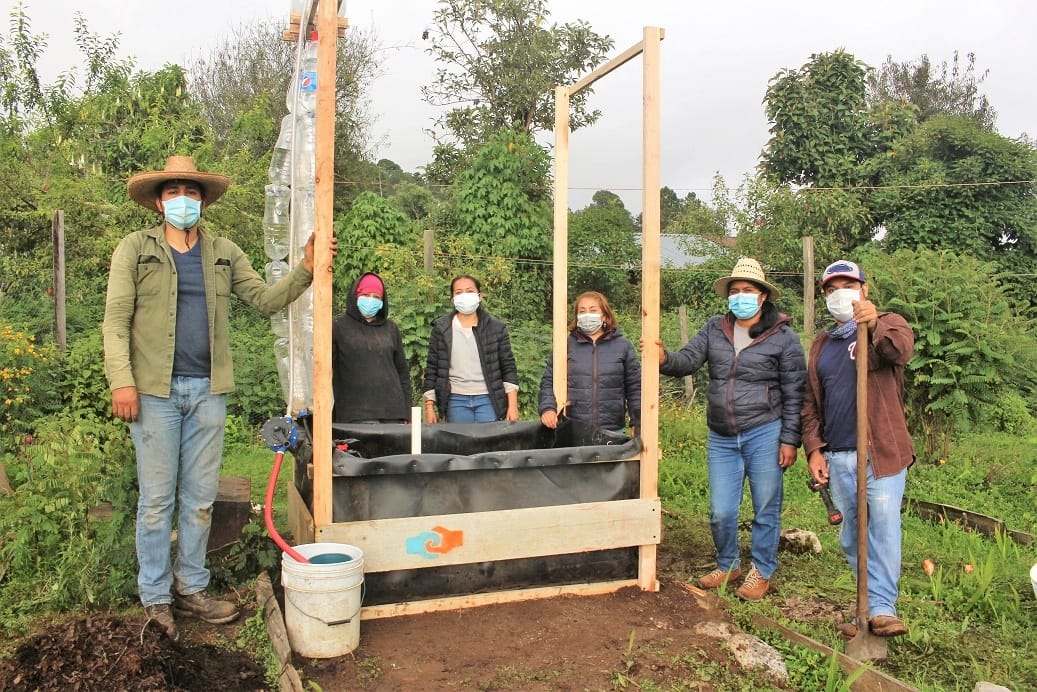 Espacio de Encuentro de las Culturas Originarias, A.C. focuses on adaptation to climate change at the local level in highly vulnerable communities in Oaxaca, a region of Mexico that sees frequent droughts, frosts, and cyclones. The project engages communities in the development and implementation of eco-technologies like dry toilets, energy-saving stoves, fog catchers, and garden irrigation systems. As General Coordinator Tzinnia Carranza López explains (in Spanish), “Communities involved in this project benefit from affordable, relevant, and innovative eco-technologies that make them better able to adapt to extreme weather events.” Members of the community attend workshops outlining the theoretical and practical elements of these ecotechnologies, which means people have the skills and knowledge to strengthen their community resilience. “Utilizing eco-technologies means people can produce their own food using agroecological techniques that are more resilient to extreme weather events,” Carranza López adds.
Espacio de Encuentro de las Culturas Originarias, A.C. focuses on adaptation to climate change at the local level in highly vulnerable communities in Oaxaca, a region of Mexico that sees frequent droughts, frosts, and cyclones. The project engages communities in the development and implementation of eco-technologies like dry toilets, energy-saving stoves, fog catchers, and garden irrigation systems. As General Coordinator Tzinnia Carranza López explains (in Spanish), “Communities involved in this project benefit from affordable, relevant, and innovative eco-technologies that make them better able to adapt to extreme weather events.” Members of the community attend workshops outlining the theoretical and practical elements of these ecotechnologies, which means people have the skills and knowledge to strengthen their community resilience. “Utilizing eco-technologies means people can produce their own food using agroecological techniques that are more resilient to extreme weather events,” Carranza López adds.
Watershed Organisation Trust
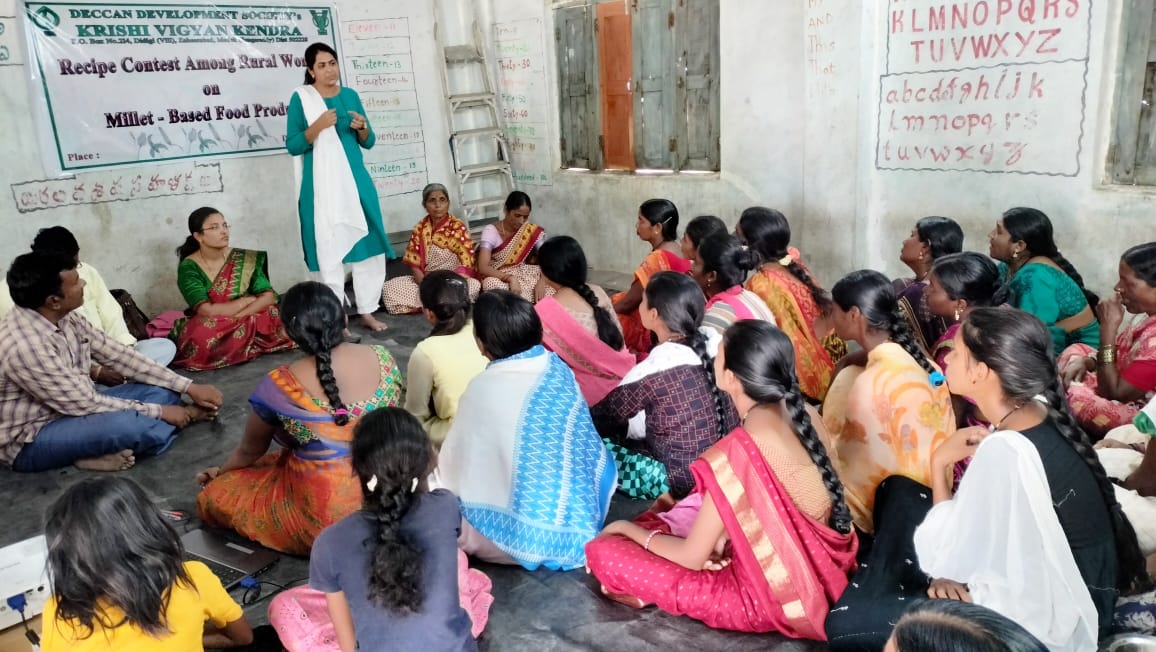 In India, Watershed Organisation Trust (WOTR) aims to bolster rural resilience against climate change through three key measures: soil and water conservation measures that aids irrigation during periods of scant rainfall; water resource development that promotes micro-irrigation technology to address water-scarce conditions and utilizes village water budgeting; and soil health and productivity enhancement that employs climate-resilient agricultural practices. Robin Abraham, Deputy General Manager and Head of Communications emphasizes the importance of community engagement: “Farmer groups anchor our approach, aligning solutions with local realities.” He adds, “Communities lead with a ‘learning by doing’ model, and WOTR is committed to nurturing community champions, pivotal throughout and beyond the project’s lifecycle.” So far, the project has implemented various watershed interventions in more than 2,000 hectares of land, reducing crop losses and improving germination of soybeans, pulses, and cotton.
In India, Watershed Organisation Trust (WOTR) aims to bolster rural resilience against climate change through three key measures: soil and water conservation measures that aids irrigation during periods of scant rainfall; water resource development that promotes micro-irrigation technology to address water-scarce conditions and utilizes village water budgeting; and soil health and productivity enhancement that employs climate-resilient agricultural practices. Robin Abraham, Deputy General Manager and Head of Communications emphasizes the importance of community engagement: “Farmer groups anchor our approach, aligning solutions with local realities.” He adds, “Communities lead with a ‘learning by doing’ model, and WOTR is committed to nurturing community champions, pivotal throughout and beyond the project’s lifecycle.” So far, the project has implemented various watershed interventions in more than 2,000 hectares of land, reducing crop losses and improving germination of soybeans, pulses, and cotton.